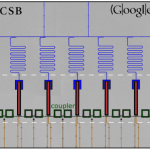
WHY THIS MATTERS IN BRIEF
There will come a time when quantum computers will outperform even the fastest “classical” computers, and now that time could be just a few months away.
The great promise of quantum computing is its ability to perform calculations of astonishing complexity that are far beyond the capabilities of any conventional computers, and physicists have long known that a quantum computer with just 50 qubits could outperform even the world’s most powerful supercomputers – a milestone that’s called “Quantum Supremacy.”
However, surpassing the maximum limits of conventional computing has turned out to be more difficult than everyone anticipated because quantum states are delicate and they can be destroyed if there’s any interference from the outside world, so a result, in one way quantum supremacy seems as far away as ever.
That said though, now it looks as though there may be another way to demonstrate quantum supremacy, one that doesn’t mean we have to first build a general purpose quantum computer.
Instead, physicists have begun playing with quantum computers that can do just one thing extremely well, and if they can show that this one thing is beyond the capability of any conventional computer then they will have demonstrated quantum supremacy for the first time.
This week, Charles Neill at the University of California and Pedram Roushan at Google announced they know how quantum supremacy can be achieved, and furthermore they say they’ve successfully demonstrated a Proof of Principle version of the system for the first time – the work now raises the prospect that the first demonstration of quantum supremacy could be just months way.
First some background.
The big advantage of qubits, like the ones we have in quantum computers, over ordinary bits, like the ones in regular computers, is that they can exist in a “superposition” of states, so while an ordinary bit can only be either a 1 or a 0, a qubit can be both a 1 and 0 at the same time.
That means 2 qubits can represent four numbers at the same time, 3 qubits can represent 8 numbers, and 9 qubits, 512 and so on and so on – in other words, their capability increases exponentially. That’s why it doesn’t take many qubits to outperform conventional computers.
Just 50 qubits can represent 10,000,000,000,000,000 numbers, whereas a classical computer would require a petabyte scale sized memory to store that number, something that’s too big for any of today’s machines.
One way to achieve quantum supremacy, apparently, is to create a quantum system that can support 49 qubits in a superposition of states. The system doesn’t need to perform any complex calculations, it just needs to be able to explore the entire space of a 49 qubit superposition reliably, so as a result, the teams goal is to create a 49 qubit superposition system.
Then again though that’s easier said than done and it’s also the reason why they’ve announced their Proof of Principle demo.
Their approach is straightforward. Qubits are quantum objects that can exist in two states at the same time, and fortunately there are lots of ways of making them, and the team have chosen to use what’s known as a superconducting qubit.
This is essentially a loop of metal cooled to low temperature. Set a current flowing through it and it will flow forever, a quantum phenomenon known as superconductivity, but this quantum nature leads to a neat trick – the current can flow in two directions at the same time, and it’s this that lets it act like a qubit.
The big advantage of superconducting qubits is that they are relatively easy to control and measure. They can also be linked to each other when several loops sit next to each other on a chip to create a more complicated system.
In this case the demo the team have created is a chip with nine neighbouring loops to show that the superconducting qubits they support can represent 512 numbers simultaneously, and while that’s nowhere near the number of qubits needed for quantum supremacy the experiment offers encouraging hints that getting there will be possible.
The 9 qubit chip’s architecture
The big fear among physicists though is that it is not only the numbers but also errors that increase exponentially in these quantum systems. If the errors increase too quickly, they will swamp the system, making quantum supremacy impossible, and useless. One of the key results from the teams demo though shows that errors don’t scale rapidly in these superconducting chips, and as a result it looks like the team have a meaningful path to create a 60 qubit system, which would be much larger than they need to prove quantum supremacy.
“These results provide promising evidence that quantum supremacy may be achievable using existing technology,” said the researchers.
The upshot of all of this is, of course, that if it works we’ll pass quantum supremacy this year, or very soon, but if not then it could be a long road. The teams work was published in Arxiv.

















